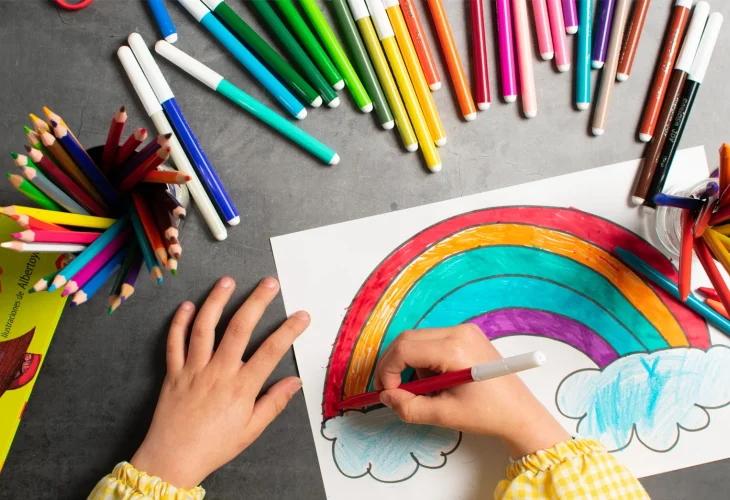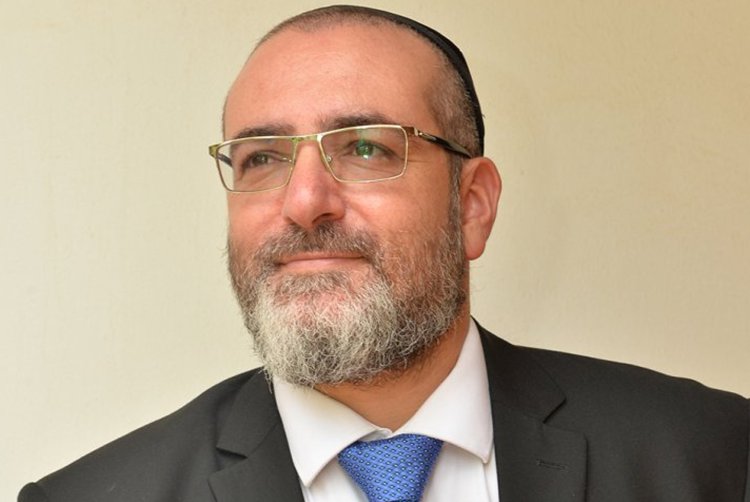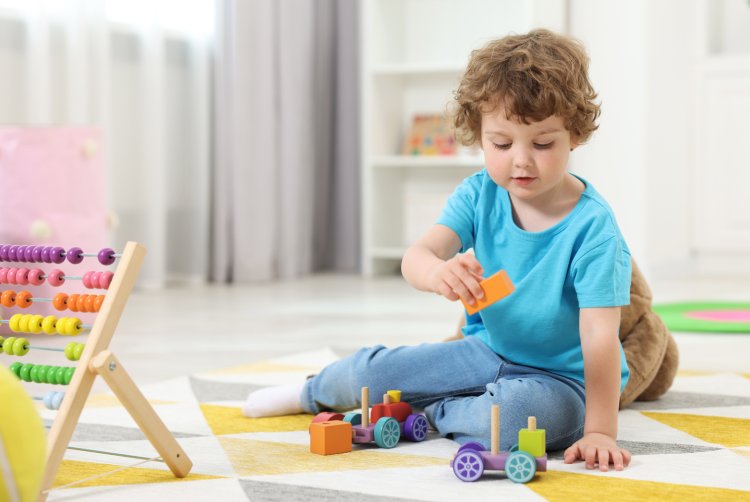A Growing Concern: Integration of Arab Teachers in Israeli Jewish Schools
Parents discover their children's teachers are Arab. Are Israeli schools doing enough to address their concerns?
 (photo: shutterstock)
(photo: shutterstock)When Tal's 8-year-old son came home after the first day of school and mentioned, "Our teacher doesn't speak Hebrew well, and another teacher will be responsible during the holidays," Tal was taken aback. He couldn't believe what was happening.
Further inquiries with other parents confirmed the unsettling findings: The principal at his son's school had hired three Arab teachers for that year. One was assigned as the homeroom teacher for Tal’s son’s third grade class, while the other two were subject teachers—one for mathematics and the other for Hebrew grammar and expression.
Tal's shock grew when he approached the school principal, who did not understand his concerns. In her view, the third-grade teacher was highly qualified and capable of teaching the children well. Though she wouldn't be present during Islamic holidays or Israeli memorial and independence days, the principal asked why these details mattered. "In fact, she told me she believes such a teacher would promote tolerance and mutual respect among the students," adds Tal.
 Elad Tzadikov
Elad TzadikovAn Arabic-Speaking Teacher
Tal is not alone. It turns out there are parents across the country whose children have been introduced to new teachers directly from the Arab sector. "I was stunned," says Gili from Herzliya, a father of two elementary kids and two older ones. "Never do I recall encountering a situation where an Arab teacher educates our children," he says, emphasizing his concern: "My issue is not with professional subjects, but with the fundamental nature of being a homeroom teacher who should shape their character. How can she fulfill this role coming from such a different background?"
Speaking with M., a mother of two daughters in Haifa, she notes that in recent years, four Arab teachers have been integrated into her daughters' school, yet they keep a low profile about their identities, and she herself wasn't aware for a long time because externally they blended well with other teachers.
"I first found out about it at a parent meeting," she adds, "when one of these teachers shared her effort to meet professional expectations and social standards. She explained she chose Jewish education due to the ample positions available compared to the sparse jobs in the Arab sector."
Indeed, the teacher shortage seems to have led to the situation where Arab educators are now teaching in Jewish schools, even in some religious public schools. According to the Ministry of Education, about 20 Arab and Armenian teachers were employed last year in religious public schools.
"It's infuriating and frustrating," claims Shoshana, the principal of a religious public school in northern Israel. "The religious public education system champions Jewish and Zionist education. How can non-Jewish teachers be part of this? How can they instill the fear of Heaven and Torah observance in these kids? It's paradoxical."
Have such teachers been placed at your school?
"At my school, there are no Arab teachers and there will not be, as we firmly resist it. However, my daughter at another middle school has an Arab teacher for one of her math classes. Since my daughter is not in that group, I haven't voiced an opinion, but other parents protested, demanding the teacher's dismissal. The school refused, but the teacher ultimately left voluntarily, realizing it wasn't suitable."
In Tal's case as well, his son’s class teacher left on her own, "but that happened after more than two months, and she even received an award from the school administration," he complains.
Although the incident has concluded, Tal remains unsettled. "When we discussed it with other parents, the school seemed divided into two camps—those accusing us of racism and supporting the teacher, and others who backed us. It's hard to accept that many parents aren't bothered by the notion of an Arab teacher educating their children."
And how did your child react?
"Our son is very perceptive and quickly understood the situation, especially since our household places a strong emphasis on tradition. He had many questions, and I told him the truth: 'The principal is respectable, but in this case, she made a mistake. An Arab teacher can't teach you fundamental aspects of Israeli holidays or memorials, not because she's less competent, but because she's from a different background. You won't find a Jewish teacher in an Arab school, because it simply doesn't fit.'"
A Result of Shortage
At the start of this academic year, MK Ahmad Tibi commented on the topic, tweeting with satisfaction: "There is a shortage of about 5,000 teachers in the Jewish education system, while in the Arab community there are about 11,000 unemployed teachers. The quickest and most effective solution is to employ Arab teachers in Jewish schools." He added, "There are hundreds of Arab teachers currently in Jewish schools and they are a success story."
"Unfortunately, this is indeed a recognized phenomenon," agrees Elad Tzadikov, a member of the Herzliya City Council for the past 11 years and current leader of 'Together'—a returnee movement. "It's no secret that many Arab teachers are integrated into Jewish schools in Israel, including religious public institutions. Most teach secular subjects, but there are cases where Arab teachers have taught the Bible or given lessons on Israel's Holocaust Day and holidays."
How do you explain this? How is it that this phenomenon isn't prevented, especially over the past year?
"This is a direct result of a severe staff shortage, as when there's a high demand for teaching staff coupled with a significant supply lack, schools feel they have no choice. It's absurd and outrageous, what's especially concerning is that when I try to address it, people around me appear to throw their hands up, seemingly believing there's no alternative, which is clearly not the case."
As a council member, couldn't you address the issue?
"Believe me, I tried to act, but it wasn't under my control. Additionally, over the past year, I've encountered another troubling phenomenon: security guards at some schools are Arabs from East Jerusalem. Consider that in times like the past year, when we are at war, the guards protecting our schools are Arabs. It's unimaginable, and when I try to raise this, I'm accused of racism."
The phenomenon exists nationwide, but is particularly pronounced in mixed-population cities like Haifa, Herzliya, and some institutions in Jerusalem. "In those areas, even Arab nannies are involved in daycare centers," Tzadikov warns.
During our investigation, we heard testimonies about nannies with crosses around their necks being hired in Jewish daycare centers due to a similar reason—staff shortages. Exact data on the number of nannies wasn’t available, but it's known that the Ministry of Labor, Social Affairs, and Social Services, along with the Ministry of Education, are currently promoting various governmental programs to support and encourage integrating different populations in daycares, including Arab caregivers.
 Photograph unrelated to the article (photo: shutterstock)
Photograph unrelated to the article (photo: shutterstock)Fighting for Change
The Ministry of Education issued a brief comment on the matter: "About 4,200 Arab teachers are employed in the Jewish sector this year, including about 14 in the religious public sector. Teacher placements are made by school principals based on professional discretion and school needs." When we requested to speak with those responsible for integrating teachers in religious schools, the ministry declined our request.
However, data obtained by 'Hidabroot' shows that the Ministry of Education itself launched an 'Orientation Program' about two years ago—a summer course to acquire tools for optimal integration. The program includes theoretical studies and simulation workshops, aiming to prepare Arab teachers for teaching in Jewish schools.
The program covers topics like multicultural competence, classroom management, teacher-parent relations, heritage and Israeli culture, society and education, and Hebrew expression, emphasizing spoken and professional Hebrew.
In addition to the Ministry of Education, the 'Integrations' Institute is behind this integration initiative, leading a special project to advance the employment of unemployed Arab teachers in Hebrew schools where there is a strong need for teaching staff. They claim this creates social and cultural diversity within the education system.
In the past two years since the program's implementation, it has achieved significant results. For instance, in the year 5782, 182 new teachers and teachers joined through the program, with 84 new integrating schools. In 5783, 262 new teachers joined, with 100 new integrating schools, and in 5784, 214 new teachers were added. Contrary to expectations that Arab teachers might drop out due to student resistance or parental opposition, data shows the opposite, with a dropout rate lower than the average for new teachers, around 10% compared to 25% in the system.
If the Ministry of Education is itself ensuring the inclusion and training of such teachers, is there anything that can be done to change the situation?
"Honestly, it's difficult to be optimistic," says Shoshana, "since it's known that the number of Jewish teachers decreases over the years and the current shortage is indeed significant. On the other hand, the thought of more and more Arab teachers being integrated into the religious system is alarming."
"The only option is to champion the cause and take it into our hands," Tzadikov clarifies, "the solution is to integrate religious educators into the education system, doing so as a mission and volunteer work, whether in schools, middle schools, or high schools. The more such educators penetrate schools, the less need there will be for Arab teachers."
Do you believe public school principals will incorporate religious teachers? Won't they oppose it?
"I want to believe they will, and in any case, I am sure many parents are pained by the issue and desire change. It's crucial that they unite and apply pressure, as that's the only way to drive change."

